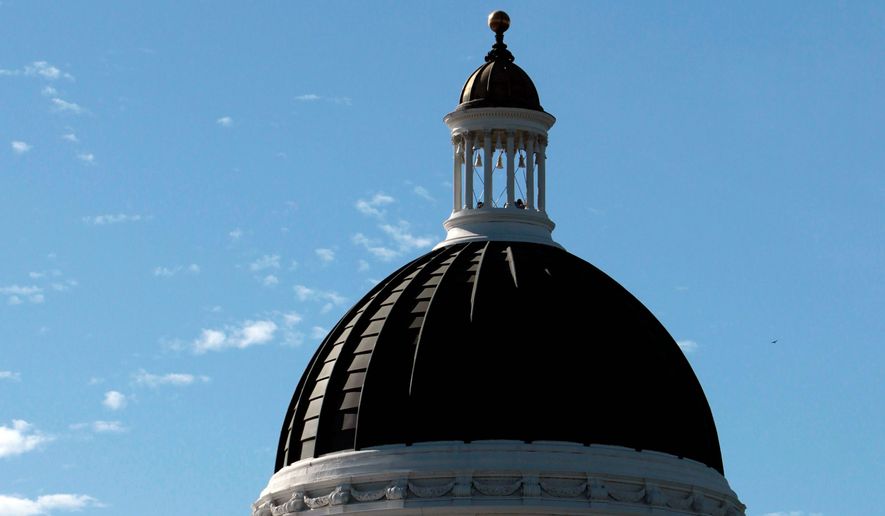SAN FRANCISCO — You can tell who sponsors NASCAR drivers by the patches on their jumpsuits. So why not do the same for politicians?
That’s the idea behind California entrepreneur John Cox’s proposed 2016 ballot initiative, which would require state legislators to wear the logos of their top 10 campaign contributors on their clothing when they advocate for policies on the Senate or Assembly floor.
He kicked off his campaign, “California Is Not for Sale,” this month with press events displaying life-size cardboard cutouts of all 120 members of the state Legislature, each adorned with logos from corporations such as Chevron and unions including the California Teachers Association.
Mr. Cox said he wants to “call attention to a problem,” namely that “our elected leaders are controlled by their funders.” In other words, this isn’t a stunt.
“This is a very serious initiative. This is not a joke,” said Mr. Cox. “If you came down from Mars and you looked at our electoral system, you’d say to yourself, ’How dumb is this?’ You’ve got a system under which people who want something from government fund the campaigns of the people who make the decisions. How stupid is that system?”
The proposal would give the California Fair Political Practices Commission the authority to decide which 10 donor logos would decorate the suits of legislators. The logos also would appear in their advertisements.
“I frankly wish that every legislator who walks into that chamber would have a clean suit on,” Mr. Cox said.
His group plans to begin gathering signatures, using paid circulators and volunteers, in January, and he is confident that the idea will draw enough signatures to qualify for the general election ballot.
At his launch events, he said, “we had people coming up and asking if they could sign a petition.’
“It didn’t matter if they were liberal or conservative or no party. The public gets it, the public understands who controls the political system in this country.”]
The measure is the first element of a two-part plan aimed at reforming state government. In November 2018, Mr. Cox hopes to qualify a Neighborhood Legislature initiative that would create mini-electoral districts for neighborhoods.
Each district would choose a candidate, and the winner of the mini-caucuses would choose one candidate to represent the district.
The effort follows another attempt at bringing government in the unwieldy state closer to the voters, the Six Californias initiative, which would have split California into six states. The proposal failed to gather sufficient signatures to qualify for the November ballot next year.
Mr. Cox wasn’t a fan of Six Californias. He said it would have created “six dysfunctional states” while falling short of addressing corruption, which he sees as the biggest challenge.
“There are so many proposals that have been enacted in California, like redistricting reform or term limits and all these other things, but they all dance around the edge of it,” Mr. Cox said. “They really don’t go at the core of the corruption in the system. The core of the corruption in the system is the power of the funders.”
Neither political party is expected to be thrilled with the proposal. Although Democrats control the state Legislature and most state offices, Republicans also have a stake in defending the status quo, he said.
“They aren’t in the majority and they don’t have much power, but they make a living off of politics,” Mr. Cox said.
A former Democrat who switched parties with President Reagan’s election in 1980, Mr. Cox describes himself as a “kind of a [Jack] Kemp Republican,” with an emphasis on policies that promote entrepreneurship, opportunity and competition.
Mr. Cox, who owns five businesses, is planning to put his money where his mouth is. “I’m not Donald Trump, but I have more than enough to get this on the ballot,” he said.
If the logo idea catches on, Mr. Cox said, he thinks it will spread nationwide.
“California is widely considered to have one of the most dysfunctional legislatures in the country. So there’s a need for it,” said Mr. Cox. “Also, California has a history of ballot initiatives and a record of being an innovator. This might be something that leads the country.”
He added: “Can you imagine members of the U.S. Congress wearing these stickers?”
• Valerie Richardson can be reached at vrichardson@washingtontimes.com.




Please read our comment policy before commenting.